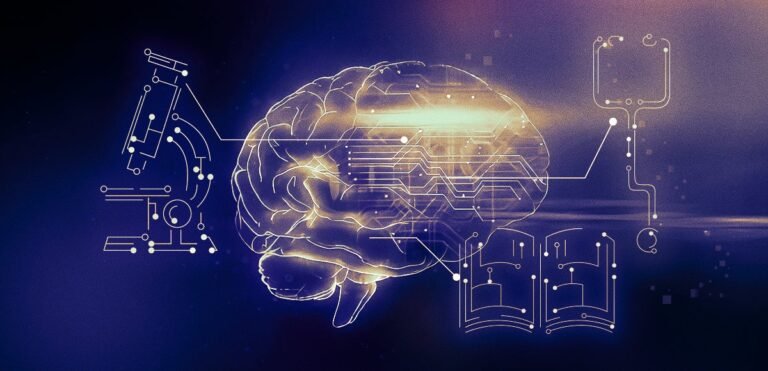
The 21st century has witnessed a remarkable transformation across various industries, largely driven by advancements in artificial intelligence (AI). From healthcare to entertainment, AI technologies are reshaping how businesses operate, enhancing productivity, and improving user experiences. Among the myriad applications of AI, one particularly fascinating area is its impact on the entertainment sector, specifically how platforms like 123 Movies utilize AI to transform content consumption.
Understanding AI’s Role in Industry Transformation
Artificial intelligence encompasses a broad range of technologies, including machine learning, natural language processing, and computer vision. These technologies enable machines to analyze data, learn from patterns, and make decisions, often exceeding human capabilities in speed and accuracy. As industries integrate AI into their operations, they unlock new efficiencies and opportunities for growth.
- Healthcare: Revolutionizing Patient Care
One of the most impactful applications of AI is in healthcare. AI algorithms analyze vast amounts of medical data to assist in diagnostics, predict patient outcomes, and personalize treatment plans. For example, machine learning models can process imaging data from MRIs or CT scans to identify anomalies that may be missed by the human eye. This not only speeds up diagnosis but also enhances the accuracy of medical assessments.
Moreover, AI-driven platforms can predict disease outbreaks by analyzing patterns in data from various sources, including social media, weather reports, and hospital records. This capability allows for proactive measures to be implemented, ultimately saving lives and reducing healthcare costs.
- Finance: Streamlining Operations and Enhancing Security
The finance industry has also embraced AI to streamline operations and bolster security. Algorithms analyze financial transactions in real-time to detect fraudulent activities, often before they can cause significant damage. By utilizing predictive analytics, financial institutions can assess credit risk more accurately, leading to better lending decisions.
AI-powered robo-advisors are transforming personal finance management by providing tailored investment advice based on individual risk profiles and financial goals. This democratizes access to financial planning, allowing more people to benefit from expert insights.
- Manufacturing: Enhancing Productivity and Safety
In manufacturing, AI is revolutionizing production processes through automation and predictive maintenance. Smart factories equipped with AI systems can monitor machinery in real-time, predicting failures before they occur. This reduces downtime and maintenance costs while increasing overall efficiency.
Additionally, AI-driven robots are increasingly being used for tasks ranging from assembly to quality control. These robots work alongside human operators, enhancing productivity and allowing workers to focus on more complex tasks that require creativity and problem-solving skills.
- Retail: Personalizing the Shopping Experience
The retail sector is undergoing a significant transformation thanks to AI technologies. E-commerce platforms utilize AI to analyze consumer behavior and preferences, enabling personalized shopping experiences. By recommending products based on past purchases and browsing history, retailers can enhance customer satisfaction and boost sales.
Moreover, AI-powered chatbots are revolutionizing customer service by providing instant responses to inquiries and assisting with transactions. This not only improves the shopping experience but also frees up human agents to handle more complex customer needs.
- Entertainment: The Evolution of Content Consumption
The entertainment industry is perhaps one of the most visible areas where AI is making a profound impact. Streaming platforms like 123 Movies leverage AI algorithms to enhance user experiences. By analyzing viewing habits and preferences, these platforms can recommend movies and shows tailored to individual tastes, keeping viewers engaged and satisfied.
AI also plays a crucial role in content creation. Filmmakers are increasingly using AI tools for scriptwriting, editing, and even special effects. For instance, AI can analyze successful screenplays and generate new storylines that cater to current audience trends. This innovation not only speeds up the production process but also offers creators new avenues for storytelling.
The Ethical Implications of AI
While the rise of AI brings numerous benefits, it also raises important ethical considerations. Concerns about data privacy, algorithmic bias, and job displacement are prevalent as industries increasingly rely on AI. Companies must navigate these challenges responsibly, ensuring that their use of AI is transparent and ethical.
- Data Privacy
As AI systems collect and analyze vast amounts of personal data, concerns about privacy have escalated. Users often remain unaware of how their data is being used, leading to a lack of trust in AI applications. It’s imperative for companies to establish clear data governance policies that prioritize user consent and transparency.
- Algorithmic Bias
AI algorithms can inadvertently perpetuate biases present in the data they are trained on. This can result in discriminatory outcomes in areas like hiring, lending, and law enforcement. To combat this, organizations must regularly audit their AI systems and ensure diverse and representative training data.
- Job Displacement
The automation of tasks previously performed by humans raises concerns about job displacement. While AI can enhance productivity, it can also render certain roles obsolete. Industries must focus on reskilling and upskilling their workforce to prepare for an AI-driven future.
Conclusion: Embracing the AI Revolution
The rise of AI is undeniably transforming industries in the 21st century, offering unprecedented opportunities for innovation and efficiency. From healthcare to entertainment, the applications of AI are vast and varied, enhancing user experiences and streamlining operations.
As platforms like 123 Movies continue to evolve, leveraging AI to personalize content and improve viewer engagement, it’s clear that the entertainment industry is just one of many sectors being reshaped by this technology. Embracing the AI revolution requires a careful balance of innovation and ethical considerations, ensuring that the benefits of AI are realized while addressing the challenges it poses.
As we look to the future, the continued integration of AI into various industries promises to redefine the way we live and work, heralding a new era of technological advancement and transformation. The journey may be complex, but the potential rewards are immense, paving the way for a smarter, more connected world.
Read More: https://populerpost.com/